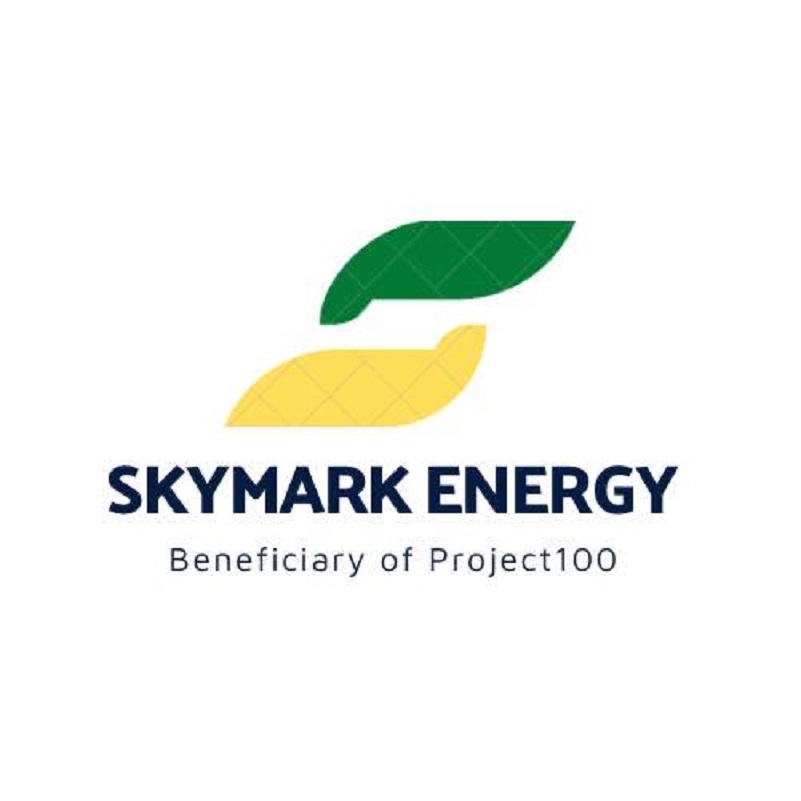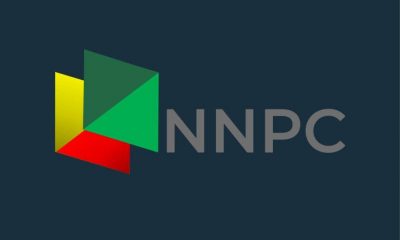Economy
Skymark Energy Chief Urges Stakeholders to End Fuel Scarcity

By Adedapo Adesanya
The Chairman of Skymark Energy and Power Limited, Mr Muhammad Saleh-Hassan, has called on oil marketers and other stakeholders in the energy sector to cooperate with the federal government in order to end the biting fuel scarcity in Nigeria.
Speaking in Abuja, Mr Saleh-Hassan stressed that oil marketers have a major role to play in ending recurring fuel scarcity in the country, noting that the energy crisis appeared to have defied the government’s efforts and urged his colleagues to be patriotic by shunning sharp practices and putting the people’s interests above high profit-making targets.
”In this circumstance that we have found ourselves, the marketers and other stakeholders should be patriotic by supporting the government in the interest of the masses.
“A critical situation like this is not a time that we should be thinking of our personal interests and gains. We should also think of the interests of the nation and the people.
“This is because you rely on the people to do your business. So, they too need your support to be able to afford the services you are rendering to them.
“You also rely on the government for regulations to also do your business. That is why you should also support the government,” he said.
Mr Saleh-Hassan stated that it was morally wrong for oil markers, as critical stakeholders in the oil and gas sector, to be unpatriotic by aiding and abetting the energy crisis through sharp practices which caused fuel scarcity.
“You are not supposed to take advantage of the situation by insisting that you want to add transport costs or make more money by hoarding your products, sending them to the black market or diverting them to other destinations, where you think that you can make more gains.
“I, therefore, call on the marketers, particularly the Independent Petroleum Marketers’ Association of Nigeria (IPMAN), the Major Oil Marketers’ Association of Nigeria (MOMAN), and the Petroleum and Natural Gas Association of Nigeria (PENGASSAN), among others, to support the government in finding a lasting solution in the interest of the masses,” he said.
Mr Saleh-Hassan stressed that fuel subsidy, which will gulp about N4 trillion this year, had not failed.
According to the Skymark boss, sharp practices in the industry are responsible for sabotaging the integrity of subsidy, stressing that it was patriotism, and not fuel subsidy removal, that would solve the fuel scarcity problem, adding that removing subsidy would hit the economy badly.
“If you remove subsidy, it will hit the economy and aggravate the ailing economy and the masses will suffer seriously. There will be severe problems in the economic sector of the country. In fact, it would worsen the current inflation. Essential commodities in particular would not be affordable.
“President Buhari’s decision not to remove fuel subsidy is a kind and commendable gesture to the masses. As a leader, I think he is in the right direction. If patriotism is applied, you can be sure that the subsidy will work,” he said.
Speaking on why fuel depots were empty, in spite of the subsisting subsidy, he said: “The claim in the media circle that depots are empty is not true. Depots are not empty. If depots are empty, where are the independent marketers getting the product they are giving to the black marketers?
“After all, if NNPC imports the products, it gives it directly to the marketers to sell to people at stations at N165 per litre. Is a black marketer an independent marketer? Where do they get the fuel that they sell to people in gallons? he queried.
Mr Saleh-Hassan also said that it was necessary for the government to take more proactive measures to decisively address the fuel scarcity situation.
“The law has to work. We have to go back to the military era when petroleum products used to be escorted by security operatives from depots to the expected destinations to stop independent marketers from diverting them.
“At the point of discharging and distribution, all the trailers should be escorted by security agents to ensure that the products are delivered appropriately to the fuel stations.
“The police clamp down on fuel hawkers who were selling fuel in jerrycans in some parts of Abuja recently was a good move and I commend the IGP for that. This should continue until we see the end of the fuel crisis,” he said.
Mr Saleh-Hassan also called on Nigerians to be patient, adding that the crisis would soon be over as it was not peculiar to Nigeria, saying, “efforts are already being made by the Federal Government to reposition the oil sector.”
He said: “The ongoing Russia-Ukraine war has triggered economic woes across the globe and this is already trickling down on the energy sector in different countries in the world and Nigeria is no exception.
“Globally, refineries are not working. Even in America. About two or three weeks ago, there was fuel scarcity in London.
“Prices of refined products in the United Kingdom and United States (US) are not stable. In the US, a gallon of fuel is almost hitting $8. In the UK, to fill a car tank now is about 100 pounds.
“But in Nigeria, the official price is still N165 per litre. So, Mele Kyari, the NNPC GMD, is doing very well and should be commended.”
Economy
Naira Down Again at NAFEX, Trades N1,359/$1

By Adedapo Adesanya
The Naira further weakened against the Dollar in the Nigerian Autonomous Foreign Exchange Market (NAFEX) for the fourth straight session this week on Thursday, February 26.
At the official market yesterday, the Nigerian Naira lost N3.71 or 0.27 per cent to trade at N1,359.82/$1 compared with the previous session’s N1,356.11/$1.
In the same vein, the local currency depreciated against the Pound Sterling in the same market window on Thursday by N8.27 to close at N1,843.23/£1 versus Wednesday’s closing price of N1,834.96/£1, and against the Euro, it crashed by N8.30 to quote at N1,606.89/€1, in contrast to the midweek’s closing price of N1,598.59/€1.
But at the GTBank forex desk, the exchange rate of the Naira to the Dollar remained unchanged at N1,367/$1, and also at the parallel market, it maintained stability at N1,365/$1.
The continuation of the decline of the Nigerian currency is attributed to a surge in foreign payments that have outpaced the available Dollars in the FX market.
In a move to address the ongoing shortfall at the official window, the Central Bank of Nigeria (CBN) intervened by selling $100 million to banks and dealers on Tuesday.
However, the FX support failed to reverse the trend, though analysts see no cause for alarm, given that the authority recently mopped up foreign currency to achieve balance and it is still within the expected trading range of N1,350 and N1,450/$1.
As for the cryptocurrency market, major tokens posted losses over the last 24 hours as traders continued to de-risk alongside equities following Nvidia’s earnings-driven pullback, with Ripple (XRP) down by 2.7 per cent to $1.40, and Dogecoin (DOGE) down by 1.6 per cent to $0.0098.
Further, Litecoin (LTC) declined by 1.3 per cent to $55.87, Ethereum (ETH) slipped by 0.9 per cent to $2,036.89, Bitcoin (BTC) tumbled by 0.7 per cent to $67,708.21, Cardano (ADA) slumped by 0.6 per cent to $0.2924, and Solana (SOL) depreciated by 0.4 per cent to $87.22, while Binance Coin (BNB) gained 0.4 per cent to sell for $629.95, with the US Dollar Tether (USDT) and the US Dollar Coin (USDC) closing flat at $1.00 each.
Economy
Crude Oil Falls as Geopolitical Risk Around Iran Clouds Supply Outlook

By Adedapo Adesanya
Crude oil settled lower on Thursday as investors tracked developments in talks between the United States and Iran over the latter’s nuclear programme, weighing potential supply concerns if hostilities escalate.
Brent crude futures lost 10 cents or 0.14 per cent to close at $70.75 a barrel, while the US West Texas Intermediate (WTI) crude futures depreciated by 21 cents or 0.32 per cent to $65.21 a barrel.
The US and Iran held indirect talks in Geneva on Thursday over their long-running nuclear dispute to avert a conflict after US President Donald Trump ordered a military build-up in the region.
Prices had gained earlier in the session after media reports indicated the talks had stalled over US insistence on zero enrichment of uranium by Iran, as well as a demand for the delivery of all 60 per cent-enriched uranium to the US.
However, prices then retreated after the two countries extended talks into next week, reducing the immediate strike potential.
Iran’s Foreign Minister, who confirmed talks will continue next week, said Thursday’s talks were the most serious exchanges with the US yet, saying Iran clearly laid out its demand for lifting sanctions and the process for relief.
His counterpart from Oman, who is handling the talks, said significant progress was made in Thursday’s talks. The Omani minister’s upbeat assessment followed indirect talks between Iranian Foreign Minister and US envoys Steve Witkoff and Jared Kushner in Geneva, with one session in the morning and the second in the afternoon.
He will also hold talks with US Vice President JD Vance and other US officials in Washington on Friday.
The Trump administration has insisted that Iran’s ballistic missile program and its support for armed groups in the region must be part of the negotiations.
The American President said on February 19 that Iran must make a deal in 10 to 15 days, warning that “really bad things” would otherwise happen.
On Tuesday, he briefly laid out his case for a possible attack on Iran in his State of the Union speech, underlining that while he preferred a diplomatic solution, he would not allow Iran to obtain a nuclear weapon.
Meanwhile, the US continues to amass forces in the Middle Eastern region, with the military saying it is prepared to execute orders given by the US President.
Economy
Why Transparency Matters in Your Choice of a Financial Broker

Choosing a Forex broker is essentially picking a partner to hold the wallet. In 2026, the market is flooded with flashy ads promising massive leverage and “zero fees,” but most of that is just noise. Real transparency is becoming a rare commodity. It isn’t just a corporate buzzword; it’s the only way a trader can be sure they aren’t playing against a stacked deck. If a broker’s operations are a black box, the trader is flying blind, which is a guaranteed way to blow an account.
The Scam of “Zero Commissions”
The first place transparency falls apart is in the pricing. Many brokers scream about “zero commissions” to get people through the door, but they aren’t running a charity. If they aren’t charging a flat fee, they are almost certainly hiding their profit in bloated spreads or “slippage.” A trader might hit buy at one price and get filled at a significantly worse one without any explanation. This acts as a silent tax on every trade. A transparent broker doesn’t hide the bill; they provide a live, auditable breakdown of costs so the trader can actually calculate their edge.
The Conflict of Market Making
It is vital to know who is on the other side of the screen. Many brokers act as “Market Makers,” which is a polite way of saying they win when the trader loses. This creates a massive conflict of interest. There is little incentive for a broker to provide fast execution if a client’s profit hurts their own bottom line. A broker with nothing to hide is open about using an ECN or STP model, simply passing orders to the big banks and taking a small, visible fee. If a broker refuses to disclose their execution model, they are likely betting against their own clients.
Regulation as a Safety Net
Transparency is worthless without an actual watchdog. A broker that values its reputation leads with its licenses from heavy-hitters like the FCA or ASIC. They don’t bury their regulatory status in the fine print or hide behind “offshore” jurisdictions with zero oversight. More importantly, they provide proof that client funds are kept in segregated accounts. This ensures that if the broker goes bust, the money doesn’t go to their creditors—it stays with the trader. Without this level of openness, capital is essentially unprotected.
The Withdrawal Litmus Test
The ultimate test of a broker’s transparency is how they handle the exit. There are countless horror stories of traders growing an account only to find that “technical errors” or vague “bonus terms” prevent them from withdrawing their money. A legitimate broker has clear, public rules for getting funds out and doesn’t hide behind a wall of unreturned emails. If a platform makes it difficult to see the exit strategy, it’s a sign that the front door should have stayed closed.
Conclusion
In 2026, honesty is the most valuable feature a broker can offer. It is the foundation that allows a trader to focus on the charts instead of worrying if their stops are being hunted. Finding a partner with clear pricing, honest execution, and real regulation is the first trade that has to be won. Flashy marketing is easy to find, but transparency is what actually keeps a trader in the game for the long haul.
-

 Feature/OPED6 years ago
Feature/OPED6 years agoDavos was Different this year
-
Travel/Tourism10 years ago
Lagos Seals Western Lodge Hotel In Ikorodu
-

 Showbiz3 years ago
Showbiz3 years agoEstranged Lover Releases Videos of Empress Njamah Bathing
-

 Banking8 years ago
Banking8 years agoSort Codes of GTBank Branches in Nigeria
-

 Economy3 years ago
Economy3 years agoSubsidy Removal: CNG at N130 Per Litre Cheaper Than Petrol—IPMAN
-

 Banking3 years ago
Banking3 years agoSort Codes of UBA Branches in Nigeria
-

 Banking3 years ago
Banking3 years agoFirst Bank Announces Planned Downtime
-

 Sports3 years ago
Sports3 years agoHighest Paid Nigerian Footballer – How Much Do Nigerian Footballers Earn




















